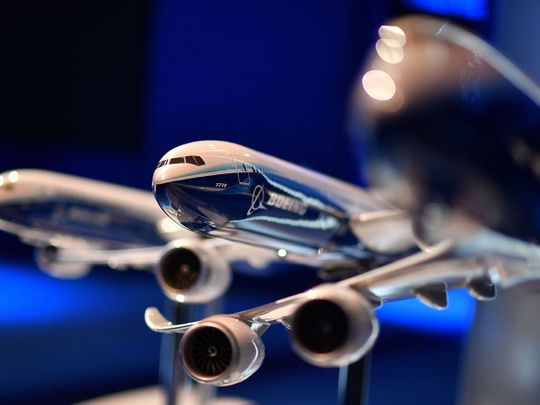Aircraft maker Boeing steps up deep cleansing initiative

Dubai: Aircraft manufacturer Boeing has launched a new cleanliness-focussed strategy to try and restore passenger confidence in taking to the skies again. The ‘Confident Travel Initiative’ (CTI) aims to develop solutions to minimise health risks associated with air travel following the COVID-19.
The US company will work with airlines, healthcare specialists, and other partners to promote awareness of “technologies that are already part of every Boeing jet”.
But the company has ruled out the need for physical distancing on board if multiple layers of safety are deployed across each journey. “We see the need for multiple layers of protection around flying to minimise the risk of transmission on board,” said Jim Haas, director of product marketing for Boeing Commercial Airplanes.
This includes ensuring no ill person gets on board, thoroughly disinfecting the cabin before passengers get inside, and using technologies to mitigate transmission of airborne viruses inside an aircraft.
“Don’t travel if you don’t feel well - check in online, follow airport processes, get your temperature screened at the gate and before you board the aircraft," Haas said. "We have a number of technologies on cabins to mitigate virus transmission. The travelling public must also follow WHO (World Health Organisation) recommendations and wear face coverings.
"These three layers will do a good job in making air travel safe.”
Raise the game
Airlines have already upped their game when it comes to cabin cleaning - Boeing says it can further help with this. This could be in the form of identifying what kind of disinfectants can be used in the cabin to developing ultraviolet light disinfecting systems and antimicrobial coatings for high-touch surfaces.
Boeing said the CIT will build on the aviation industry’s existing safety approaches such as enhanced cleaning, temperature checks and the use of face masks. It highlighted existing operating procedures such as the High-Efficiency Particulate Air (HEPA) filters, which can remove 99.9 per cent of airborne particulates such as viruses, bacteria and fungi from an aircraft’s cabin.
A broad understanding
Boeing is working with the International Civil Aviation Organisation to create standards for airplane cleanliness so operators understand the best processes.
“Everyone seems to understand what the issues are," said Haas. "There has not been a broad disagreement from any agencies we have talked to. We need to get a point where passengers and crew will board aircraft without hesitation.”

Comments